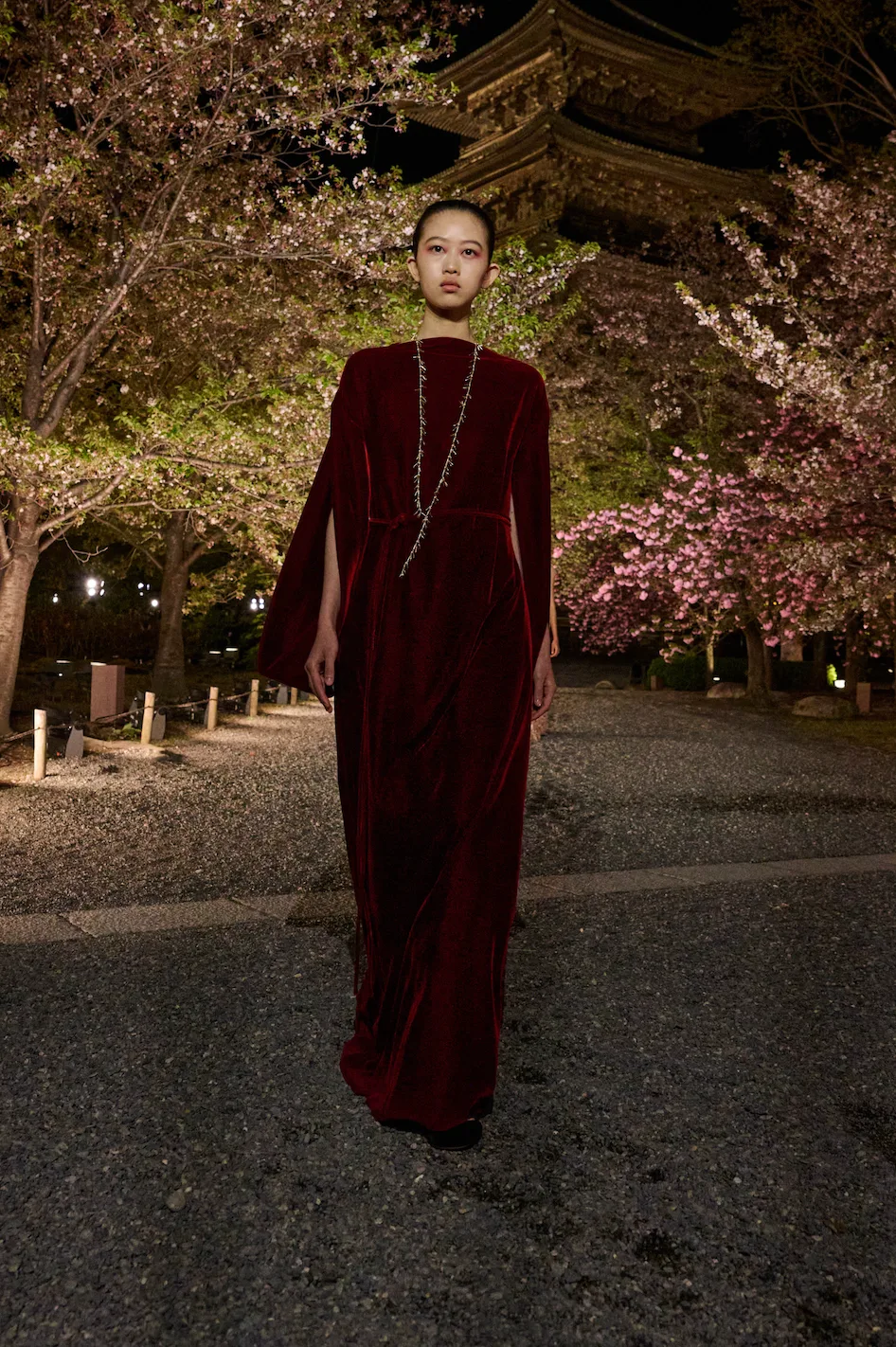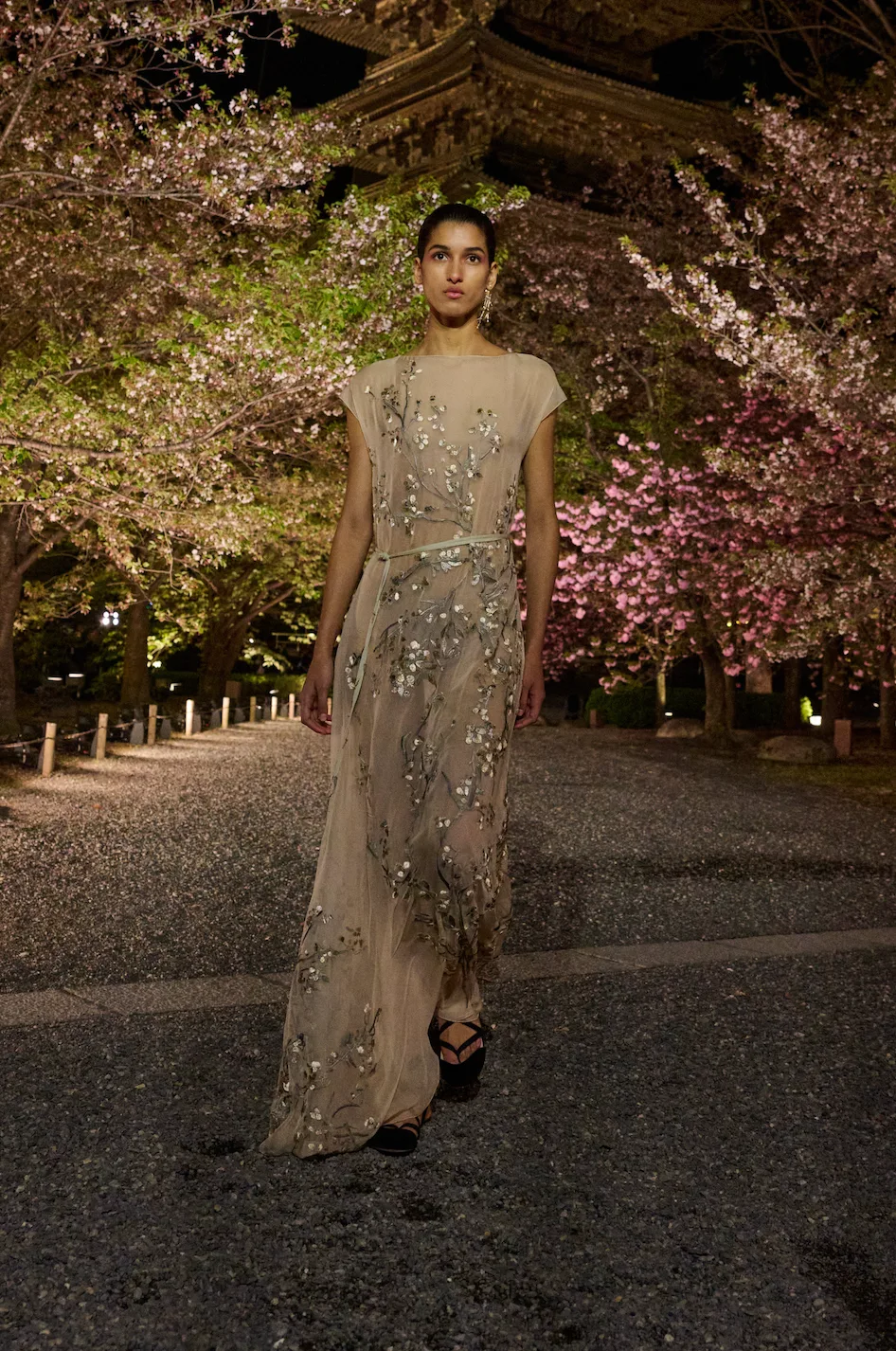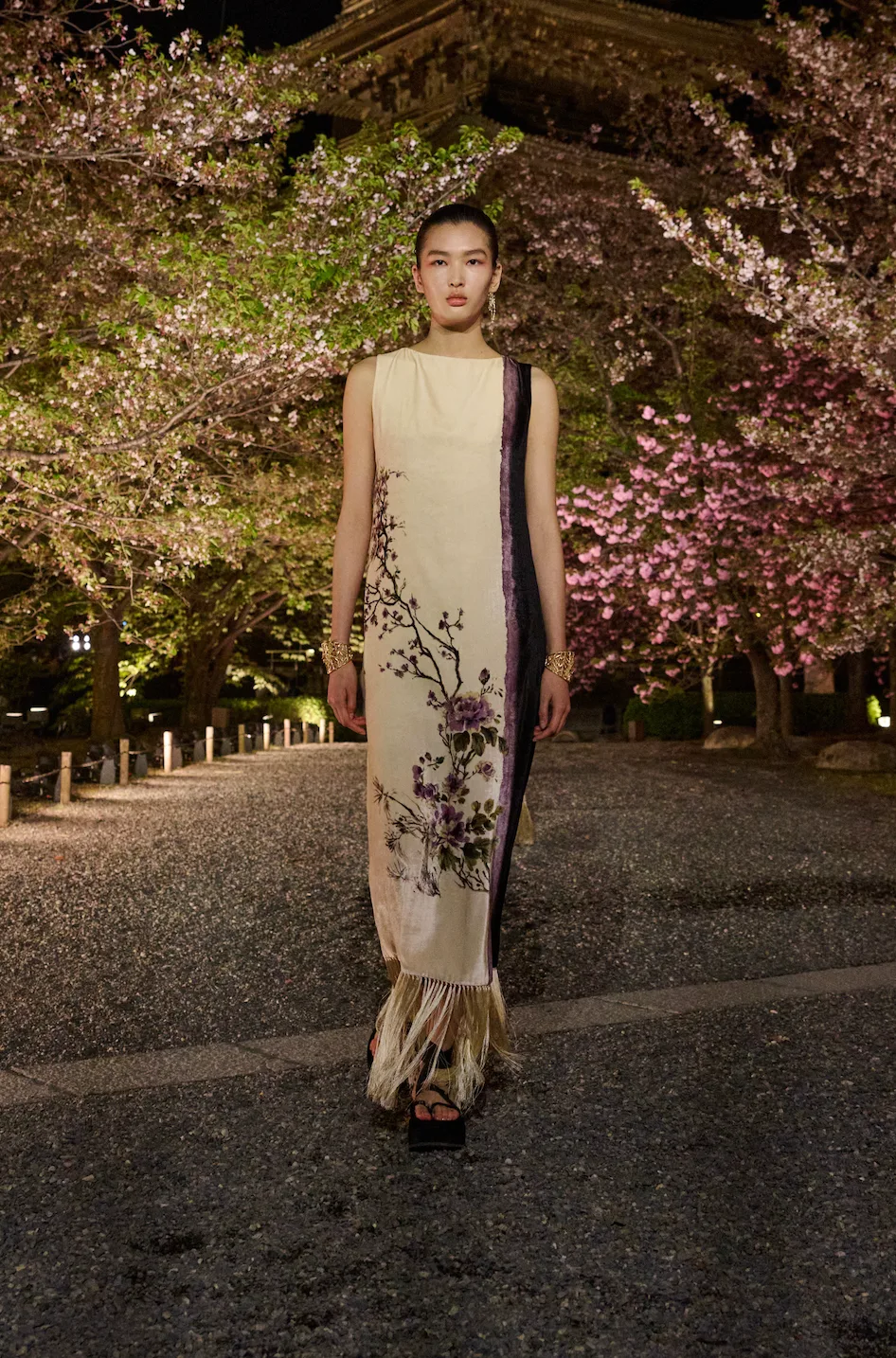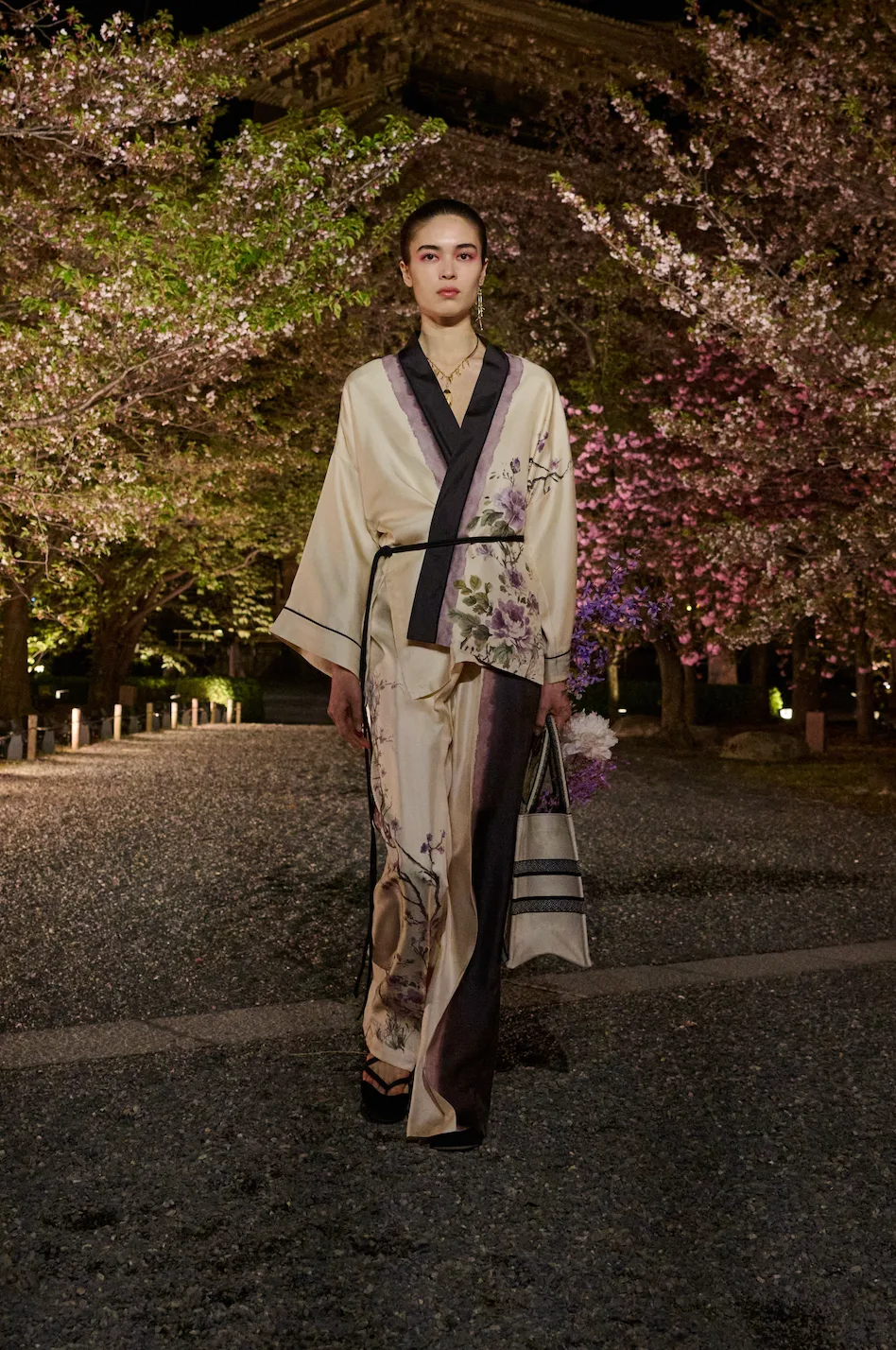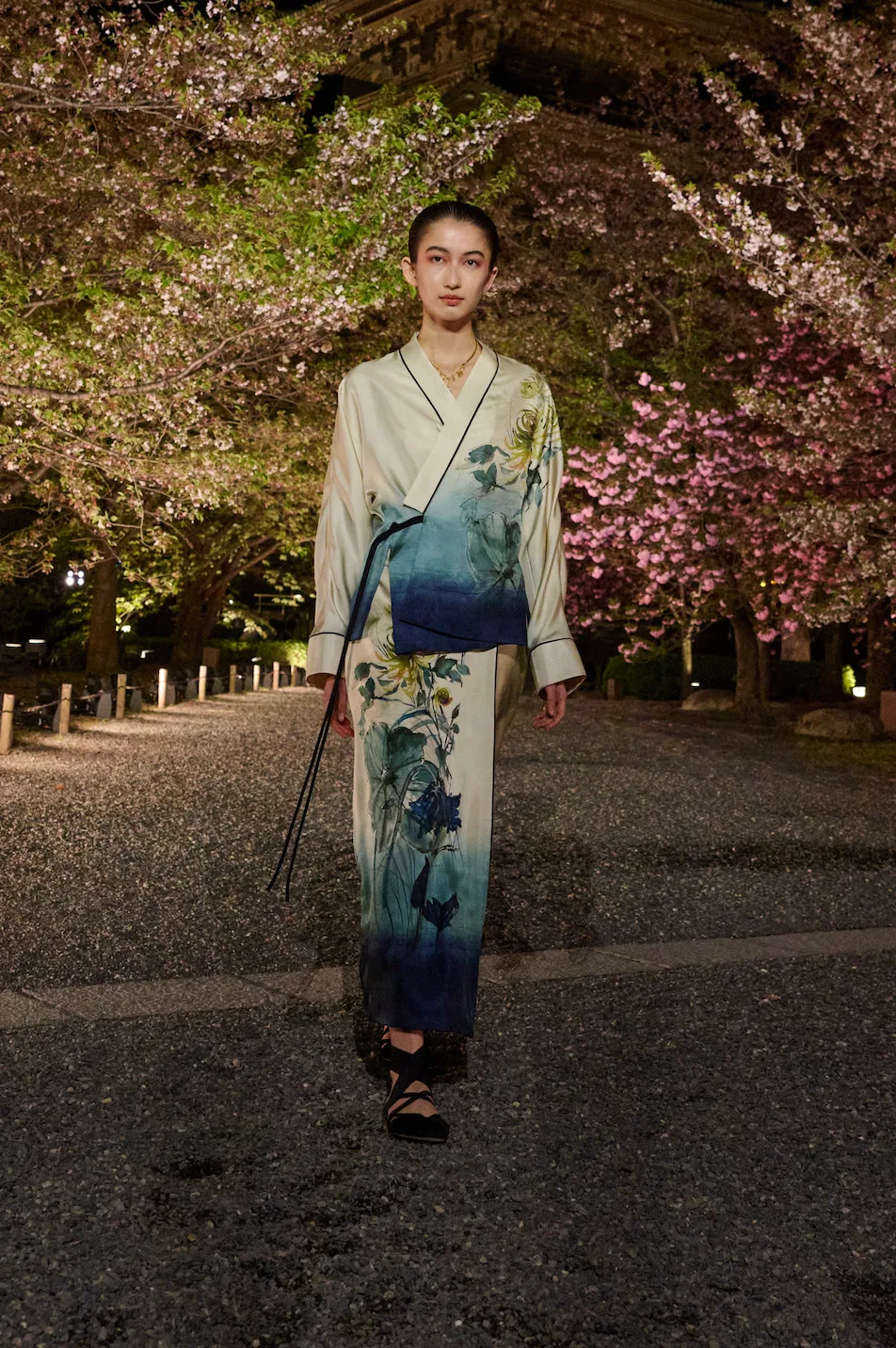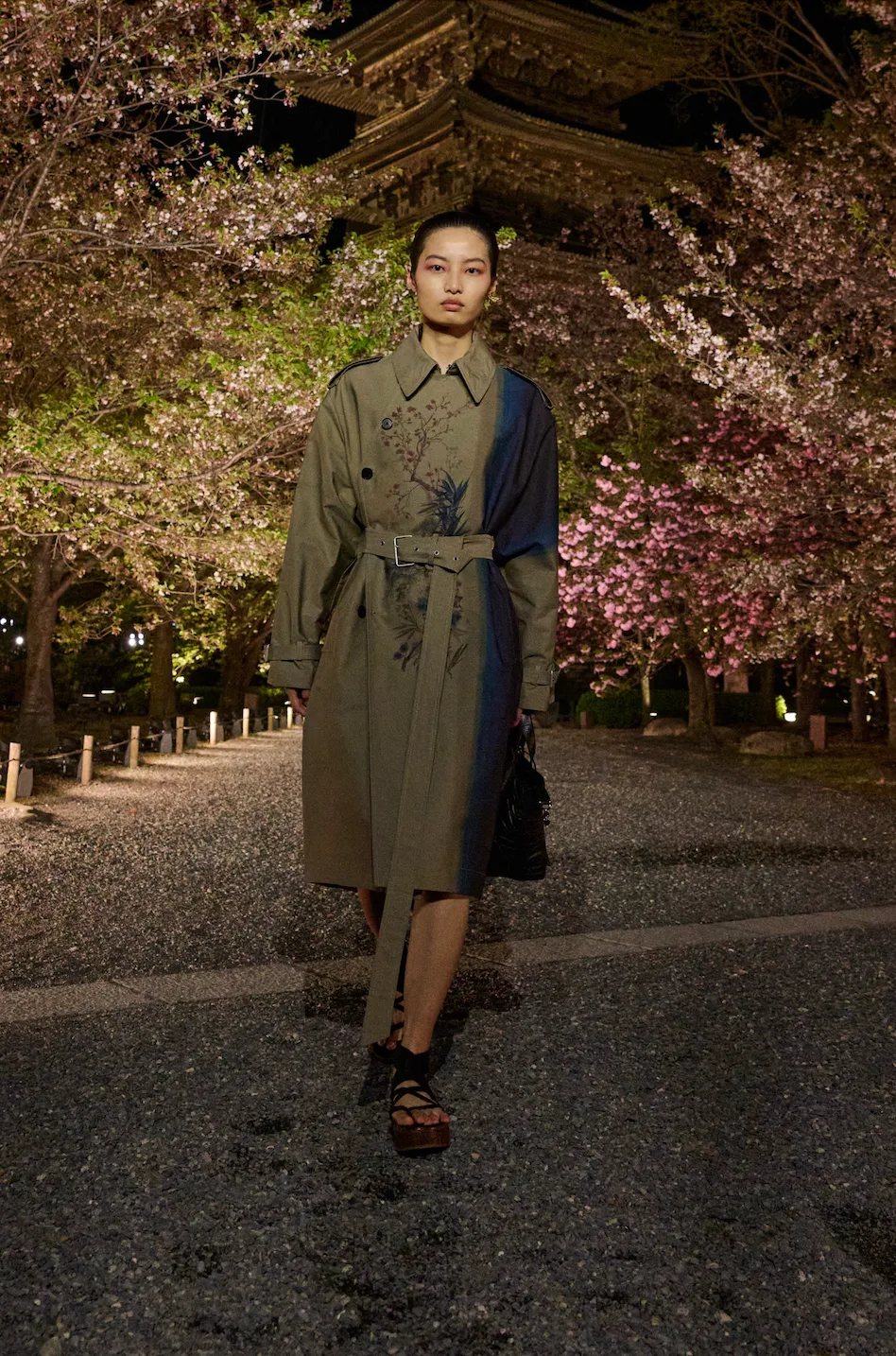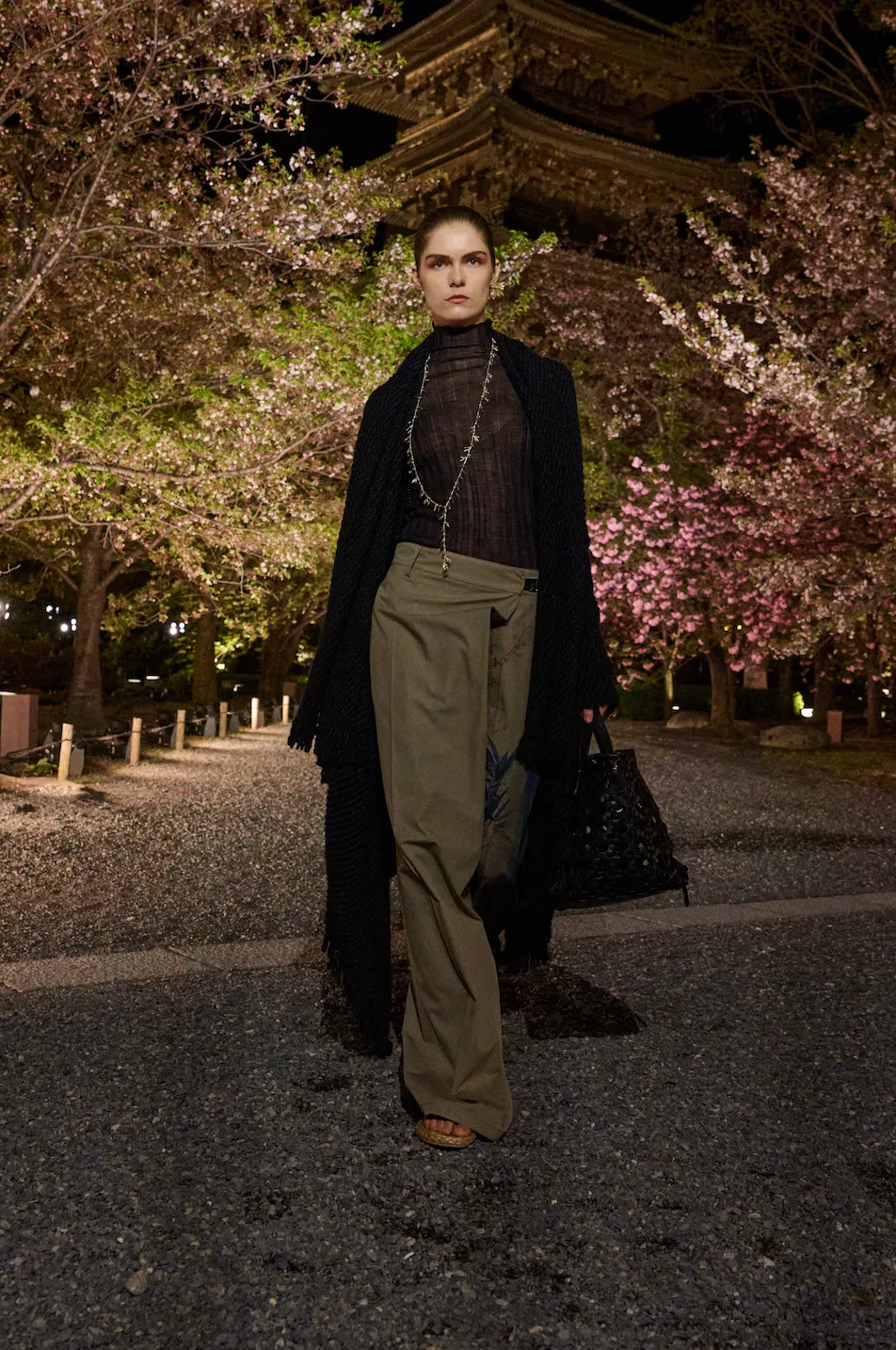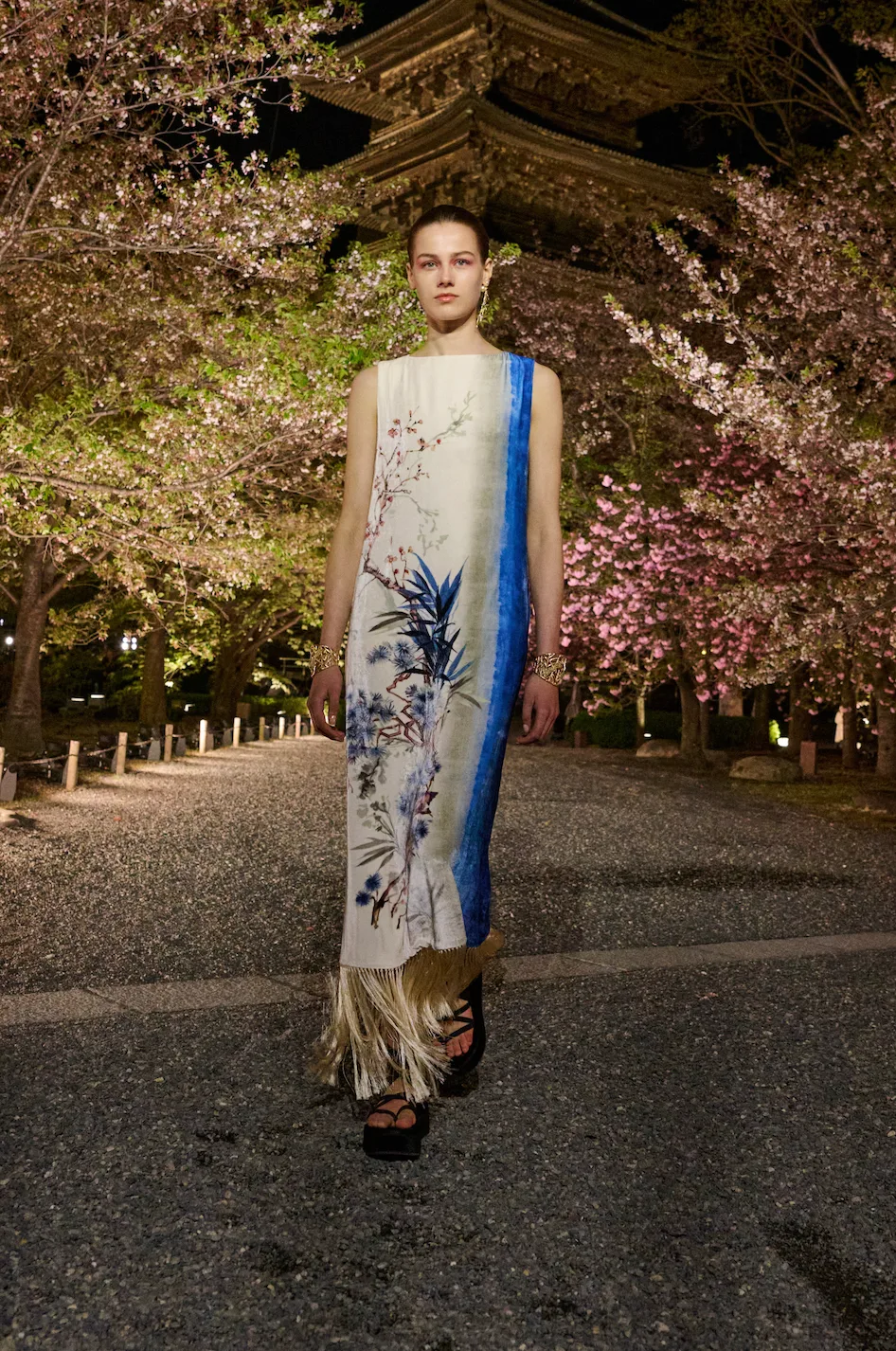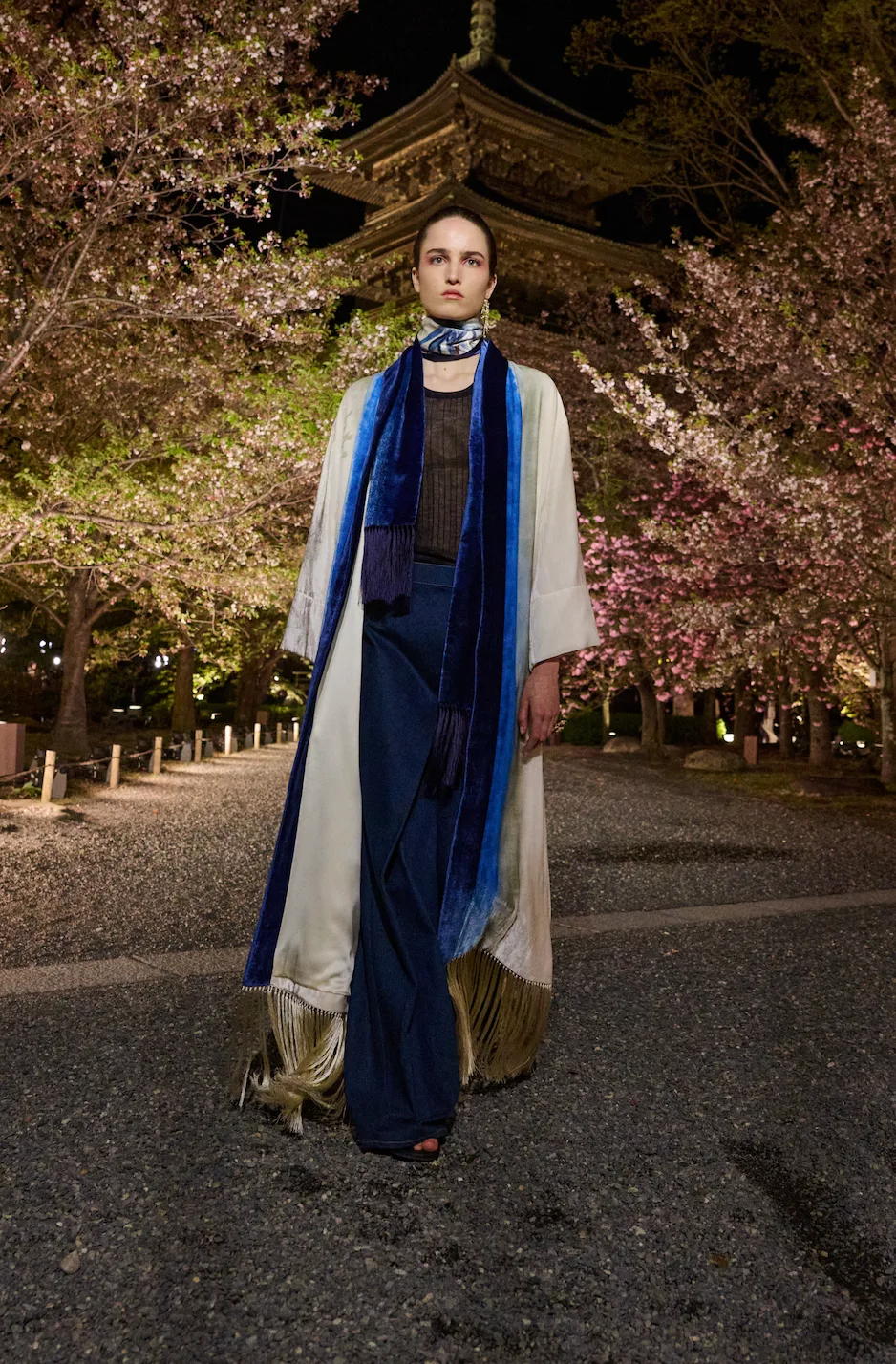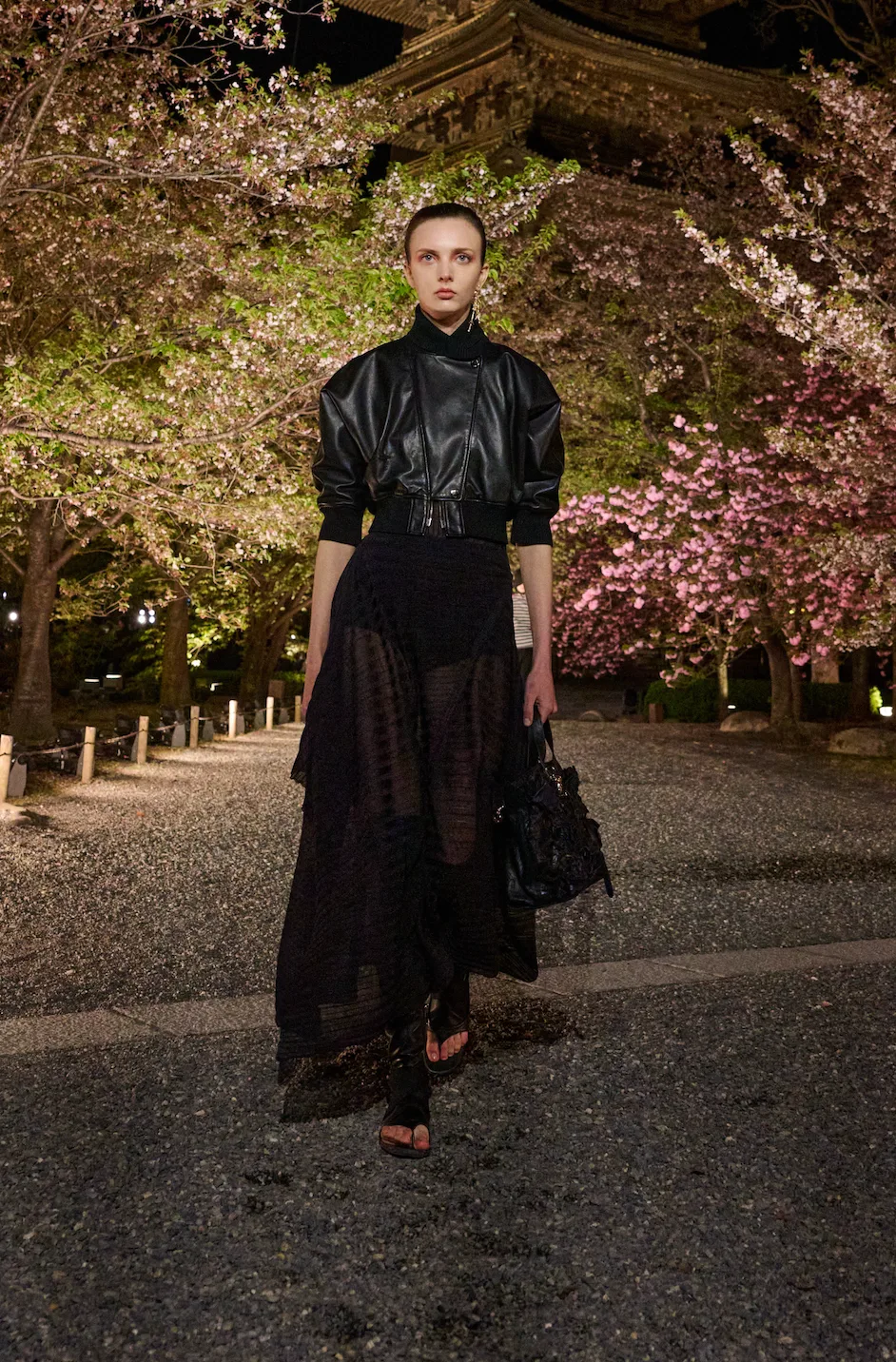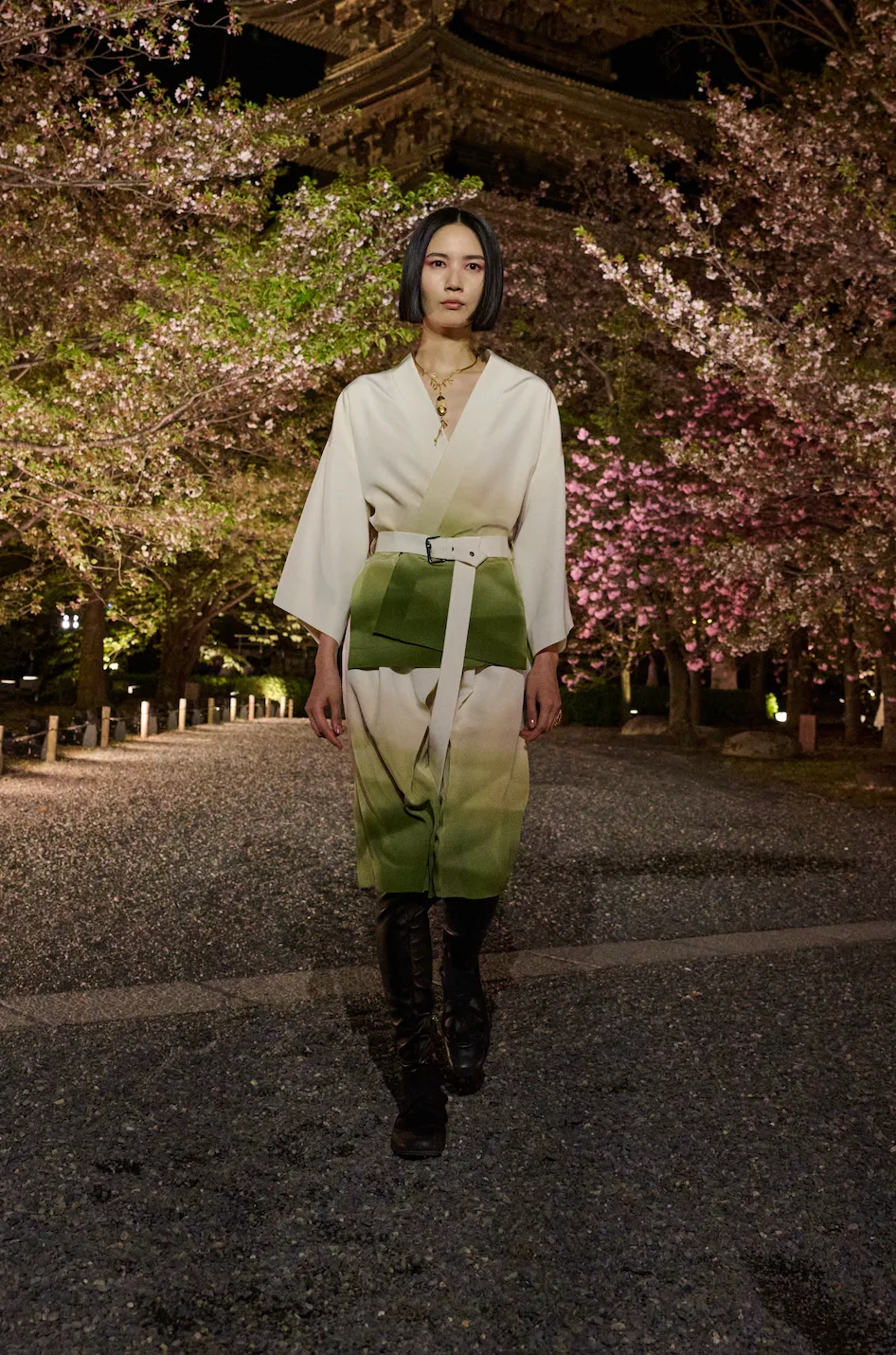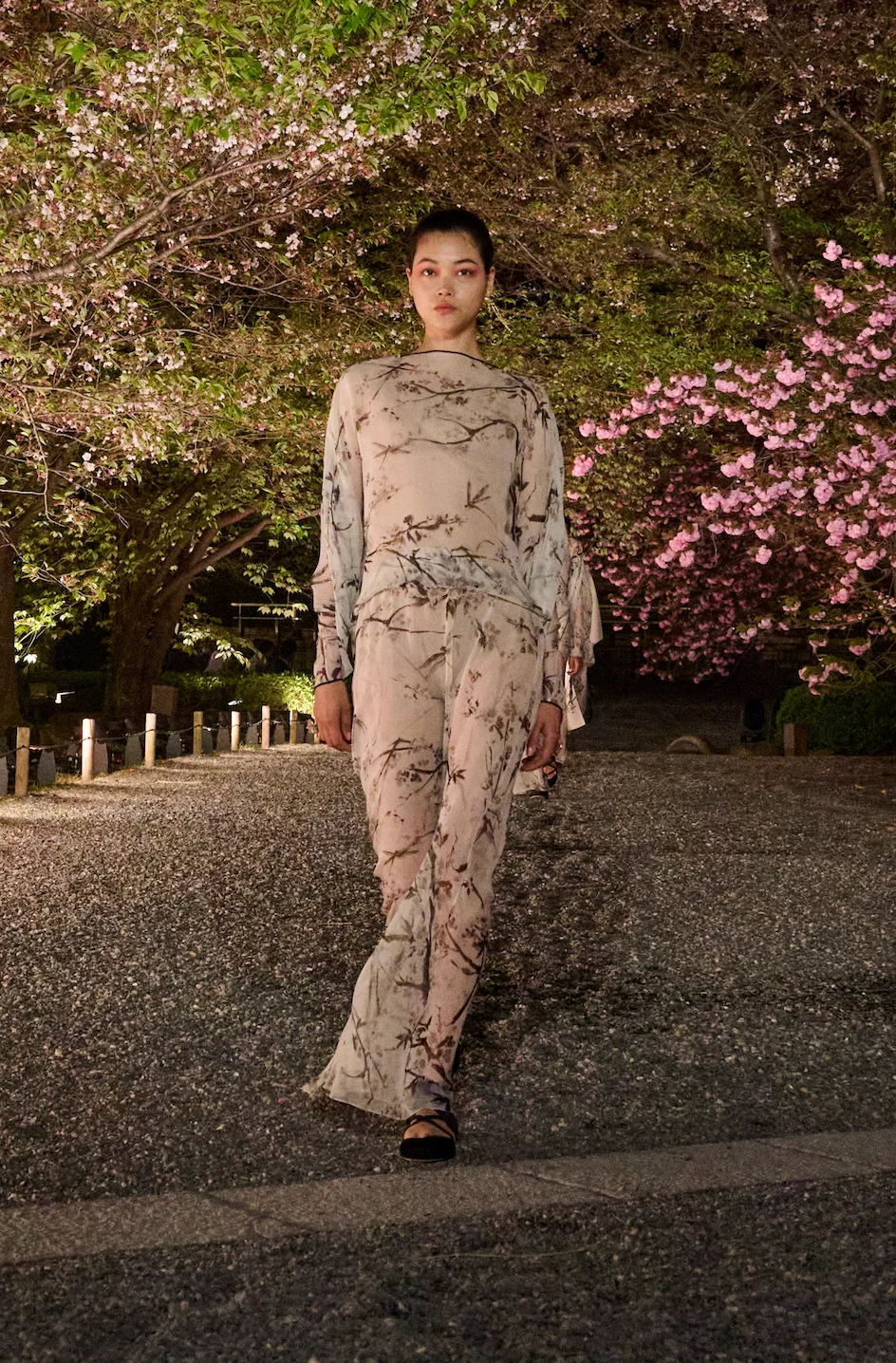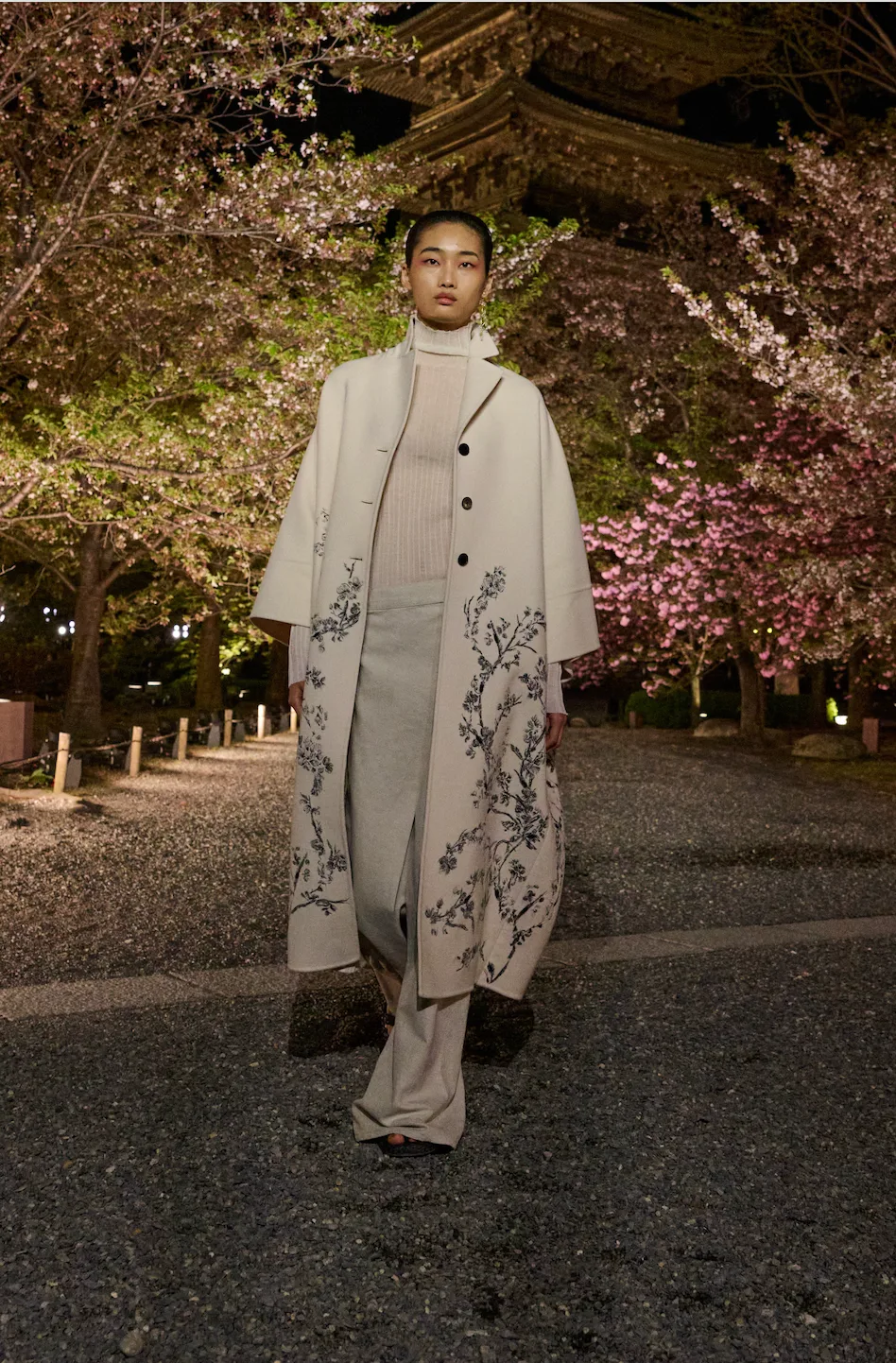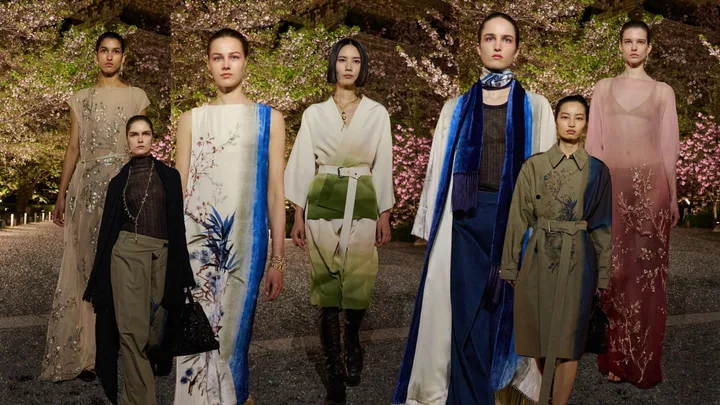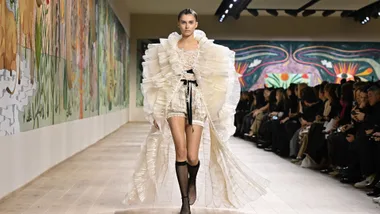As dusk settled over the ancient Toji gardens in Kyoto, the atmosphere thickened. The pagoda loomed in the background, centuries old, as Maria Grazia Chiuri’s Dior Fall 2025 collection unfolded beneath a canopy of spring twilight and sakura petals. It was a moment less about spectacle and more about sensibility – a quiet tribute to the dialogue between fashion, architecture, and the body.
Chiuri’s Eastward Gaze
This season, Chiuri turned her gaze East – not in pursuit of exoticism, but of equilibrium. The collection asked a fundamental question: where does the body end and the garment begin? It was a show about thresholds – of space, identity, and tradition. “The reality of a building is defined by its interior space,” she said, echoing a sentiment that could be applied to garments as well.

Reimagining The Kimono
At the core of the collection was a conversation with the kimono – not just as a garment, but as an idea. Chiuri traced a historical thread back to Christian Dior’s own fascination with Japanese dress, particularly the Diorpaletot and Diorcoat of 1957, tailored to envelop a kimono without disrupting its silhouette. Now, in 2025, that legacy is not simply referenced, but reinterpreted.
Volume, Movement, And Stillness
Jackets and coats swept down the runway in generous proportions, cinched with wide belts or left to flow with architectural ease. Silk panels echoed the brushstrokes of a Japanese garden; moiré monochromes and inky indigo gradients transformed classic French tailoring into something more fluid, more meditative. Origami folds whispered through wrap skirts and structured trousers, while pleated knits flickered with movement like temple lanterns in the wind.

Modern Utility
And yet, it wasn’t all softness. Denim made an unexpected entrance, reimagined through the lens of craftsmanship and mobility. Sport-inflected pieces – bomber jackets, panelled blousons – balanced the delicacy of floral embroidery and vegetal motifs with a grounded utility, speaking to the urban modernity of the contemporary wearer.
What emerged from Chiuri’s Kyoto odyssey was less a collection than a cartography of cultural interlace. Inspired in part by Love Fashion: In Search of Myself, the Kyoto Costume Institute’s recent exhibition, Chiuri pressed into the heart of what fashion can say about identity, memory, and the emotions etched into every hem.
